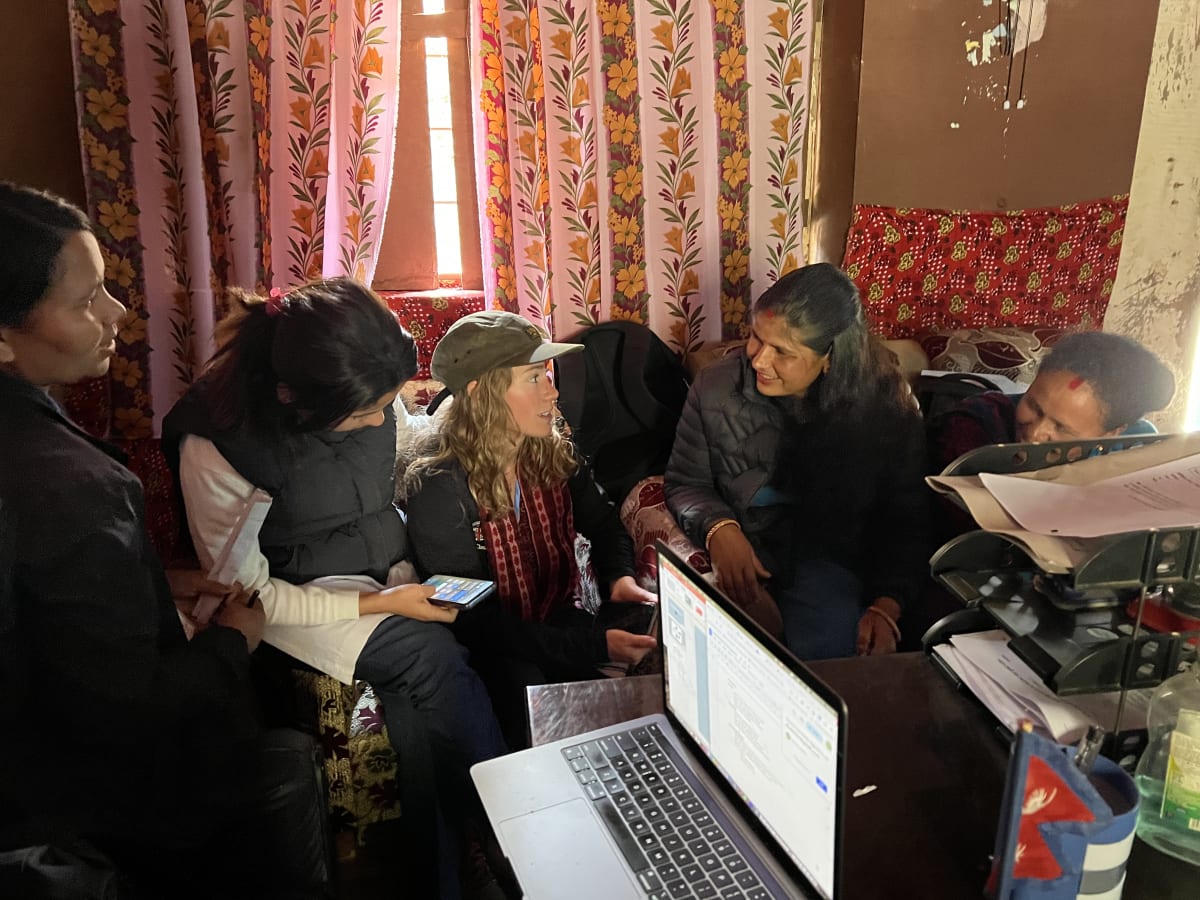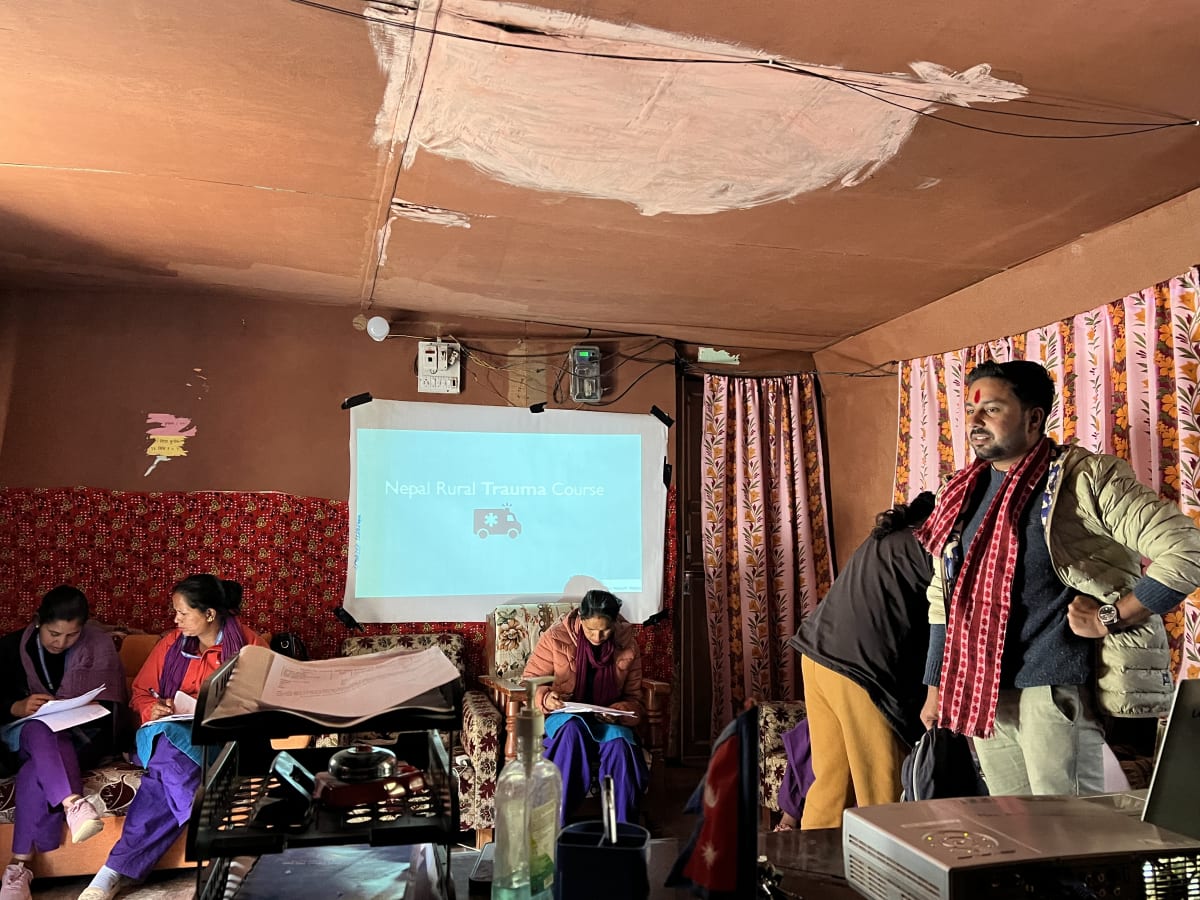I will be facilitating a two-day trauma training course for rural pre-hospital health workers in the Achham district of Nepal, specifically within Ramaroshan municipality. The trauma course will be designed partly from the WHO/ICRC open-access Basic Emergency Care course trauma module. This will be a joint effort between healthcare workers from Bayalpata Hospital (where patients in Achham receive trauma care), local first responders, and the Brown University Division of Global Emergency Medicine.
This educational and research collaborative aims to develop bidirectional knowledge sharing and build research capacity at Bayalpata Hospital and the surrounding municipalities to engage in future programs to improve local pre-hospital emergency medical and trauma care. Additionally, a culturally relevant trauma skills handbook with step-by-step images is being designed by our team to be used as an adjunct to the course. This handbook is being created in consultation with local healthcare providers to ensure the skills are demonstrated with available supplies and are relevant to the injuries they manage. The course will have approximately 4 hours of lecture, with the remaining time focused on hands-on simulation and skills training. We plan to evaluate the impact of the course by assessing clinical indicators for pre-hospital care of traumatic injuries as determined by the use of recommended and available traumatic therapies/interventions before arrival at the Bayalpata Hospital emergency department at six and 12 months after the trauma training course. We will also assess the course impact with pre- and post-course knowledge-based assessments and confidence surveys regarding managing patients with traumatic injuries.
Ultimately, the goal is to strengthen pre-hospital trauma care in the municipalities served by Bayalpata Hospital by developing long-term educational training and research collaboration between healthcare workers in Achham, Nepal, and Brown University.
This project will serve the pre-hospital healthcare workers in the Ramaroshan Municipality as they will receive advanced training in managing trauma patients; it will also serve the patients they care for. Bayalpata Hospital receives approximately 52,000 patients per year in the emergency department, with roughly 50% of patients presenting with traumatic injuries. If the course is well received and demonstrates improved patient care, then the goal is to expand the training program to benefit patients in all the municipalities surrounding Bayalpata Hospital by improving the pre-hospital trauma care they receive.
After the course is finished, the participants will continue to use the skills taught during the training to provide enhanced care for patients with traumatic injuries. In the future, we aim to hold a training of the trainer course to prepare local healthcare workers to facilitate the trauma course on their own to assist in developing self-sustainable trauma training in the Achham district.
We will review post-course hospital data to determine if patients arriving with traumatic injuries from the trained pre-hospital healthcare workers received appropriate pre-hospital trauma care to assess the course from a patient intervention perspective. The outcomes of this project will be shared with local community leaders, the Bayalpata Hospital leadership, the Nepal WHO office, and the Nepal Ministry of Health and Population in order to assist in advancing the region's trauma care.






I traveled to Nepal in March 2023 to spend a few weeks at Bayalpata Hospital, located in the far-western region of the country in the Achham district, one of Nepal's most remote regions with some of the country's highest poverty rates. I participated in a collaborative effort between Bayalpata Hospital and the Brown University Division of Global Emergency Medicine to implement a 2-day trauma training course with a focus on hands-on small group trauma skills stations
for rural pre-hospital healthcare workers in the surrounding municipalities. There have been previous efforts to expand trauma care training in Nepal; however, there has been limited literature assessing the effectiveness of various trauma training programs regarding the effect of the course on patient care interventions.
During my time preparing for this course, I witnessed not just the delivery of high-quality and complex care, but a team of people united in their efforts and care for their patients and each other. It became clear that Bayalpata Hospital is not just a building but a vessel for change. The hospital staff are not just healthcare providers; they are a family, a feature of this hospital's culture that is the key ingredient for Bayalpata's success. I look forward to going back.